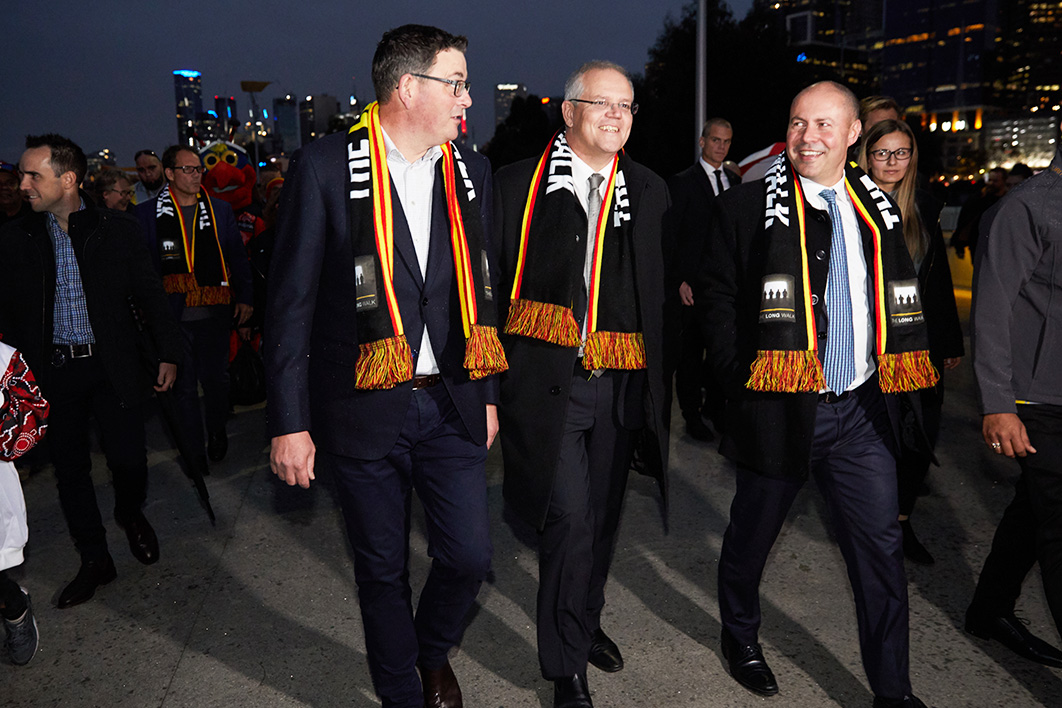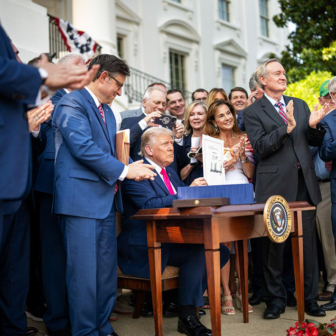Josh Frydenberg didn’t have a good election last year. For only the second time since the formation of the Liberal Party in 1946, the federal treasurer’s pedigreed Melbourne electorate of Kooyong returned a primary vote below 50 per cent. (The first occasion was in 1972.)
There were several reasons: a bad statewide result for the Coalition (its worst since 2010), a high-profile Greens contender, Julian Burnside, and, most importantly, an independent former Liberal, Oliver Yates. After preferences Frydenberg held the seat comfortably against Burnside, 55.7–44.3, but his 2016 win against Labor had been a much bigger 61.6–38.9, and the recast 2019 Liberal–Labor tally was 56.7–43.4, still an easy victory but a big 6.1 per cent swing to the opposition.
To top it off, very dodgy Liberal Chinese-language corflutes, designed to look like Australian Electoral Commission signs, probably boosted the treasurer’s vote.
All round, it was a re-election Frydenberg would probably prefer to forget, and I only have the indelicacy to mention it because, well, the Australian brought it up first. On Tuesday, in one of its regular tirades against Daniel Andrews (headline: “Coronavirus Victoria: Rage Against the Regime, End Lockdown ‘Torture’”) the paper indulged in a numerical pea-and-thimble trick so obvious it would have made even hardened Newspoll spinners blush.
Praising Frydenberg’s repeated attacks on the Victorian premier for the severity of his lockdown, the paper then shared this information:
Political observers have noted he [Frydenberg] is a popular figure in his home state, winning 48,928 first-preference votes in his seat of Kooyong at the 2019 election while [Daniel] Andrews received 19,649 votes in his state electorate.
See what they did there? They compared raw numbers in a federal electorate (total enrolment 108,413) with raw numbers in a state one (enrolment 40,588). In actuality, Andrews’s 2018 primary vote in Mulgrave was 56.7 per cent (versus Frydenberg’s 49.4), and 62.7 per cent after preferences.
The campaign to “get Dan” knows no bounds.
But let’s talk about Frydenberg, who is by general consensus the most likely successor to Scott Morrison as party leader when the position is vacant, however and whenever that is. In early May, a lifetime ago, when minister Dan Tehan went on ABC’s Insiders and bagged Andrews’s Covid-19 restrictions, someone quickly forced a public mea culpa out of him within hours. But now the restraints are off, with government figures, senior and junior, competing to land the most ferocious blow on Victoria’s premier. (Their treatment of Queensland’s government isn’t too different, but there’s an election on there.)
And Frydenberg leads the pack. Is he impressing the voters? That’s the wrong question, because the intended audience is closer to home. For months the Coalition backbench and the wider conservative movement has bristled under the pandemic-induced political ceasefire between the federal government and the Labor leaders, and none have bristled more than those in the state led by the premier most loathed by Coalition rusted-ons. Now, with the truce torn up, Frydenberg and others are scratching an itch — and that low rumbling sound you can hear is thousands of Liberal true believers purring.
This is not to say that criticism of Andrews isn’t warranted, most obviously for the hotel quarantine mistakes that let loose the tragic second wave. Opinions differ about the appropriateness of various components of the lockdown, and problems remain with contact tracing, the curfew decision and conflicted accounts of who knew what when. But they’re not the only government who could have done things differently: how many people would still be alive now if international flights had been restricted a month earlier, and if the Ruby Princess debacle had been avoided?
And, no slouch at cynical politics himself, the premier this week made an almighty fuss about some visiting New Zealanders, showing that all sides can play the “blunders” game.
Anyway, on Monday the treasurer turned the volume up further and let loose about Andrews’s “callous indifference” to suffering and “bloody-mindedness”; the premier was “making it up as he goes… Enough is enough.”
For a senior minister with robust leadership ambitions the dynamics are all but irresistible. But this is still cheap politics: all upside for the feds, because they wouldn’t wear any responsibility for the downside of prematurely loosening restrictions.
Frydenberg is following a well-worn path to the leadership through the party room. Malcolm Turnbull and Kevin Rudd (particularly their second comings) presented archetypes of the alternative, public route: the popular acclaim earned by regular displays of varying degrees of disloyalty, which colleagues eventually give in to despite their dislike and distrust. (Bob Hawke’s 1982–83 stalking of Bill Hayden can be squeezed into this category as well.)
At the other end of the spectrum, an ambitious minister impresses the more impressionable in parliament, appealing to them on a visceral, ideological level, and by extension to their (usually misguided) idea of what voters crave. Recall how, after Turnbull’s toppling two years ago, the final round of the second-spill contest between Mr 5 per cent Peter Dutton (5 per cent being the proportion of the public who told pollsters they wanted him to be prime minister) and Mr a-slightly-higher-number-perhaps-8 per cent Scott Morrison. Both had earned their stripes in the immigration portfolio, showcasing their willingness to use inflammatory language and generally be “tough” on refugees.
Of the candidates the public would have preferred on that occasion, one had just been dragged down and the other managed not much more than her own vote. (Despite the view that Julie Bishop was shut out because of her gender, her problem was that she was “progressive” and too much like Turnbull.)
Josh Frydenberg is very likely to succeed in his ambition to lead his party one day, but doing it at the right time requires old-fashioned luck. The curse of Brendan Nelson, another party-room manipulator, hovers.
And Dan Andrews? He is unlikely to be Labor leader at the next election, not because of the heavy-handed lockdown — the public will judge it worthwhile if that normal Christmas eventuates — but because of his perceived responsibility for the second wave itself. He won’t be able to shake that off. •





